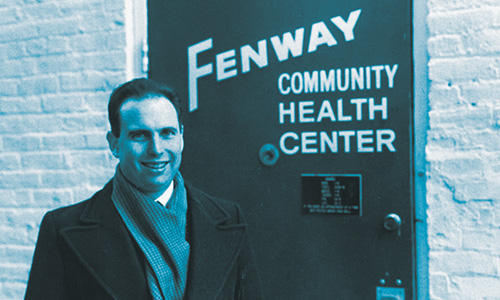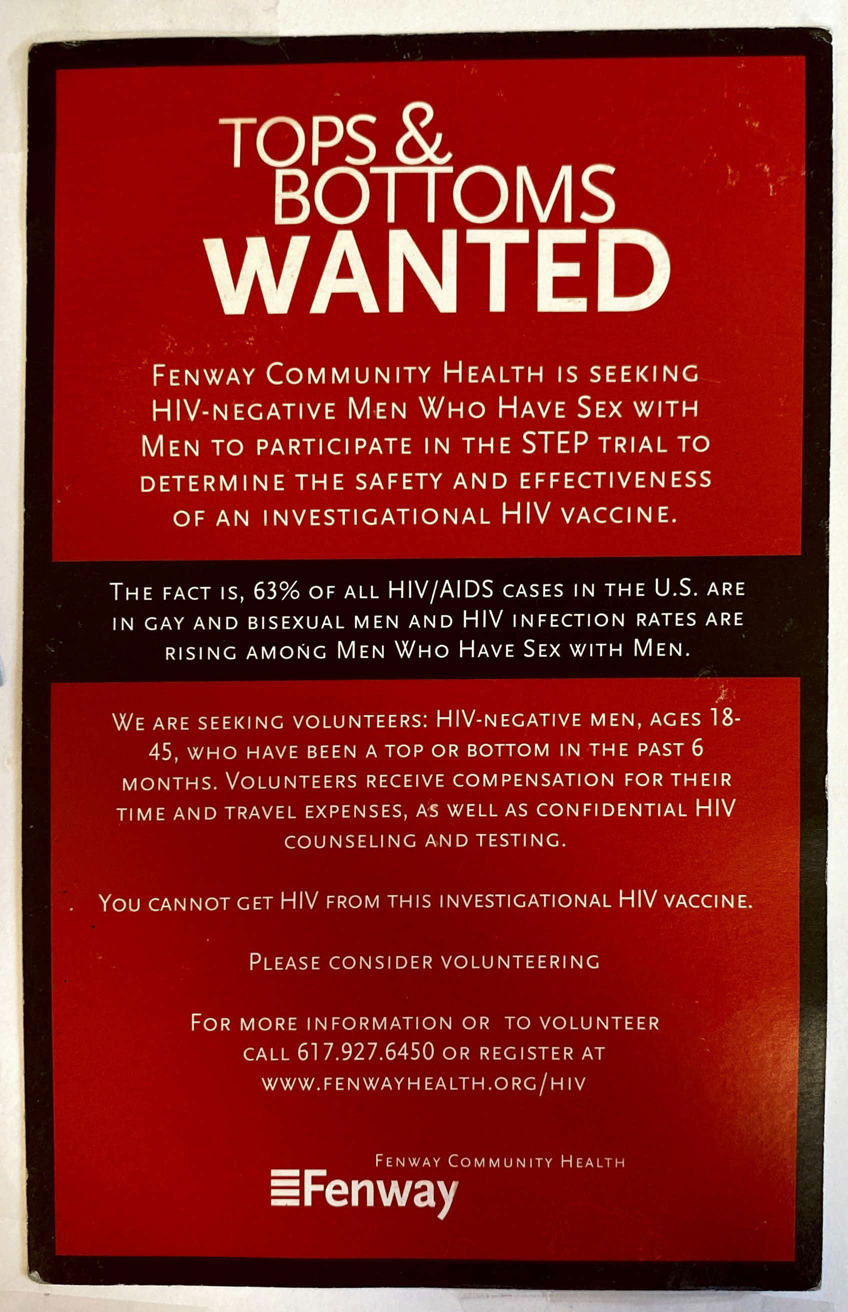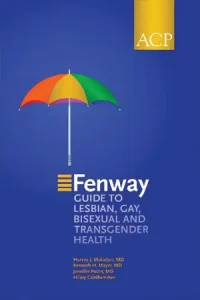The Fenway Institute is founded
with Judy Bradford and Ken Mayer as co-chairs.
Judy Bradford helps Fenway secure the first federal funding
to “adapt and evaluate patient navigation as an effective HIV prevention intervention for disadvantaged persons infected with HIV” from the HIV/AIDS bureau in the Federal Health Resources and Services Administration.
The Fenway Institute joined with other organizations
such as the Gay and Lesbian Medical Association and Columbia Medical School to advocate for the inclusion of LGBT people in the US department of Heath and Human Services’ Healthy people 2010 and Healthy People 2020
HIV prevention research studies begin
at Y.R. Giatonde Centre in Chennai, India through the NIH-funded Fenway HIV Prevention Trials Unit.
Baseline data from the EXPLORE Study is published.
The EXPLORE study was the first randomized trial conducted among MSM in the United States that was designed to test the efficacy of a behavioral intervention in preventing HIV Infection by using HIV infection as the endpoint.
The Fenway Institute completes Phase I of its rectal microbicide acceptability study for men
The study hopes to provide information on developing additional methods to reduce HIV transmissions.
Fenway becomes one of the first organizations nationwide to participate in an experimental preventive vaccine trial for Human Papilloma Virus for men.
The Division of Education and Training is Founded to provide LGBTQIA+ competency education for health care organizations
The Fenway Institute begins recruitment for the STEP Trial, the second HIV Vaccine efficacy trial ever conducted.
The Fenway Guide to Lesbian, Gay, Bisexual, and Transgender Health, a groundbreaking textbook designed to teach medical professionals about how to care for the LGBT Community, is published.
In November, The New England Journal of Medicine (NEJM) publishes the results of the iPrex study which shows that pre-exposure use of HIV medications helps protect gay and bisexual men and transgender women from HIV infection.
The Fenway Institute is one of only two United States study sites. The study involved 2,499 people in 6 countries on four continents and the study findings were some of the most exciting news in the battle against HIV in many years, receiving widespread coverage in the world press.
Fenway Health hosted the 2011 meeting of the International Council on Retroviruses and Opportunistic Infections.
Conference participants discussed pre-exposure prophylaxis (PrEP), a new retroviral medication with potential to prevent new HIV infections.
Supported with funding from the National Institute of Mental Health and the National Institute of Drug Abuse, investigators at the Fenway Institute publish a comprehensive review of the impact of mental health on HIV risk among men who have sex with men
The Bureau of Primary Health Care awarded the Division of Education and Training a National Cooperative Agreement, after which the National LGBTQIA+ Health Education Center was formally founded.
The Fenway Institute at Fenway Health merged with the LGBT Aging Project to strengthen research and training of providers caring for LGBT elders, and increase public awareness of the ways in which older LGBT individuals are similar to, and different from, other elders in American society.
LifeSkills for trans women is launched, a five-year trial funded by NIH to assess the effectiveness of HIV prevention intervention among young transgender women between the ages of 16 and 29.
The Fenway Institute is awarded $813,000 in funding to study the sexual health of female-to-male (FTM) transgender people.
Sari Reisner, ScD, leads the pioneering “LifeSkills for Men” project focusing on innovations in preventive sexual health screening in sexually-active FTM transgender patients.
The Fenway Institute publishes results from the Project VOICE survey of transgender Massachusetts residents,
showing that nearly two-thirds had experienced discrimination in public accommodations, including restaurants, public transportation and health care settings.

The US Centers for Disease Control and Prevention issue recommendations on the use of pre-exposure prophylaxis (PrEP) for preventing HIV infection.
Biomedical research at The Fenway Institute was instrumental in gaining approval of this crucial new tool in the fight against HIV.
The Center for Population Research in LGBT Health, a program of The Fenway Institute led by Judith Bradford, PhD, hosts the first meeting of the groundbreaking Bisexual Research Collaborative on Health.
National experts and activists in bisexual health research and advocacy convene at Fenway’s Ansin Building to set an agenda for cutting-edge collaboration in this understudied field.
The Fenway Institute partners with AIDS United and AIDS Resource Center of Wisconsin to launch the country’s first National Center for Innovation in HIV Care.
Funded by the US Department of Health and Human Services, the three partners will travel the country to share best practices for HIV care and prevention with community health centers, AIDS service organizations and other community-based organizations.
The Fenway Institute publishes Our Health Matters: Mental Health, Risk and Resilience Among LGBTQ Youth of Color Who Live, Work or Play in Boston.
The report draws important attention to the higher risks of victimization, suicidality, substance abuse, homelessness and HIV infection faced by these young people.

The Fenway Institute publishes a policy brief outlining the impact of anti-LGBT bills and laws on the health of LGBT people
The LGBT Aging Project works closely with the state’s Special Legislative Commission on Lesbian, Gay, Bisexual and Transgender Aging to publish a report recommending large-scale reforms that will improve the lives of Massachusetts’ LGBT elder adults.
Fenway Institute launches recruitment for the AMP study, a worldwide study of Antibody Mediated Prevention for HIV.
Worldwide, the AMP study enrolled almost 2,000 cis men and transgender people who have sex with men to test the efficacy of an experimental antibody at protecting an individual from contracting the HIV virus.

The results of the LifeSkills for Trans Women study are published.
The LifeSkills program was found to reduce sexual risk for HIV infection and transmission in young transgender women, a population with extremely high rates of HIV infection
Fenway Health begins recruiting participants for MOSAICO HIV vaccine trials.
The MOSAICO study includes participants from North America, Latin America, and Europe.
As the COVID-19 Pandemic rolled across the globe, The Fenway Institute activated its research infrastructure to host COVID-19 Vaccine trials.











